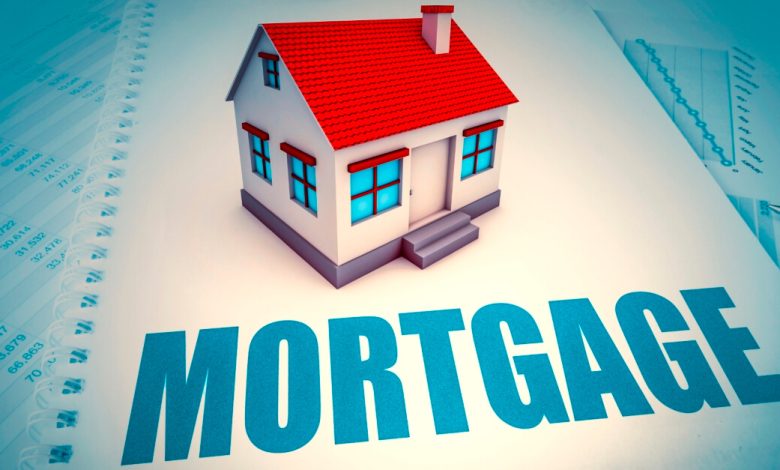Understanding Mortgage: Types, Benefits, and Tips for Homebuyers

A mortgage is one of the most significant financial commitments many individuals will make in their lifetime. It allows people to purchase property without paying the entire price upfront by borrowing funds from a lender. Mortgages are not just a simple loan; they are structured financial agreements with specific terms, interest rates, and repayment schedules. Understanding mortgages, their types, benefits, and best practices is essential for anyone considering buying a home or refinancing an existing loan.
What is a Mortgage?
A mortgage is a loan used to purchase real estate, where the property itself serves as collateral. This means if the borrower fails to meet payment obligations, the lender has the right to repossess the property. Mortgages typically involve monthly payments that cover the principal amount borrowed and the interest charged by the lender. They are long-term financial commitments, often spanning 15 to 30 years, depending on the terms.
Types of Mortgages
Mortgages are not one-size-fits-all. Understanding the different types can help borrowers select the best option for their financial situation.
1. Fixed-Rate Mortgage
A fixed-rate mortgage has an interest rate that remains constant throughout the loan term. This type provides predictable monthly payments, making it easier to budget over the life of the loan.
- Pros: Stability, predictable payments, easier long-term planning.
- Cons: Typically higher initial interest rates compared to adjustable-rate options.
2. Adjustable-Rate Mortgage (ARM)
An ARM has an interest rate that can change periodically based on market conditions. It often starts with a lower initial rate than a fixed mortgage but can fluctuate over time.
- Pros: Lower initial interest rate, potential savings if rates remain stable.
- Cons: Uncertainty in future payments, risk of higher costs if rates rise.
3. Government-Backed Mortgages
These mortgages are insured or guaranteed by government programs to assist first-time homebuyers or those with lower credit scores:
- FHA Loans: Backed by the Federal Housing Administration, requiring lower down payments.
- VA Loans: Available to eligible veterans and service members, often with no down payment.
- USDA Loans: Designed for rural property buyers, offering low-interest rates and no down payment.
4. Interest-Only Mortgage
Borrowers pay only the interest for a set period before beginning principal repayment. This can reduce initial payments but may result in higher payments later.
- Pros: Lower early payments, flexibility for borrowers with variable income.
- Cons: Principal remains unchanged during the interest-only period, potentially extending repayment.
How Mortgages Work
Mortgages function by dividing payments into principal and interest:
- Principal: The amount borrowed to purchase the property.
- Interest: The cost of borrowing money, calculated as a percentage of the remaining principal.
- Taxes and Insurance: Often included in monthly payments, covering property taxes and homeowner’s insurance.
Payments are usually amortized, meaning the amount applied toward interest and principal changes over time. Early payments primarily cover interest, with principal repayment increasing as the loan progresses.
Factors Affecting Mortgage Approval
Lenders consider several criteria when approving a mortgage:
- Credit Score: Higher credit scores often qualify for lower interest rates.
- Income and Employment History: Stable income assures lenders of repayment capability.
- Debt-to-Income Ratio: A measure of existing debts compared to income; lower ratios are preferred.
- Down Payment: Larger down payments reduce loan amounts and may improve approval chances.
Benefits of Mortgages
Mortgages offer multiple advantages for homebuyers:
- Access to Homeownership: Enables individuals to purchase homes without paying the full price upfront.
- Build Equity: Over time, mortgage payments increase ownership in the property.
- Tax Advantages: Certain mortgage interest payments may be tax-deductible.
- Financial Leverage: Using borrowed funds can allow for investment in other assets or opportunities.
Risks Associated with Mortgages
While mortgages facilitate homeownership, they also carry risks:
- Default Risk: Failure to meet payments can result in foreclosure and loss of the property.
- Interest Rate Risk: Adjustable-rate mortgages may become expensive if rates rise.
- Market Risk: Property value may decline, leading to negative equity.
- Long-Term Commitment: Mortgages are long-term obligations requiring disciplined financial planning.
Tips for Managing a Mortgage Effectively
Managing a mortgage wisely ensures long-term financial stability:
- Make Extra Payments: Paying more than the required monthly amount can reduce principal and total interest.
- Refinance When Beneficial: Refinancing to lower interest rates can save money over time.
- Maintain a Budget: Ensure mortgage payments fit within your monthly budget without compromising other financial goals.
- Build an Emergency Fund: Prepare for unexpected expenses to avoid missing mortgage payments.
- Monitor Interest Rates: Stay informed about market trends to take advantage of refinancing opportunities.
Common Mortgage Myths
- Myth 1: You need a 20% down payment. Many programs allow smaller down payments, especially government-backed loans.
- Myth 2: Only those with perfect credit can get a mortgage. While credit scores matter, various loans accommodate moderate scores.
- Myth 3: Paying off early is always best. While extra payments reduce interest, prepayment penalties may apply in some loans.
Conclusion
A mortgage is a critical financial instrument that enables homeownership, supports investment in real estate, and provides opportunities to build wealth over time. Understanding the different types of mortgages, how they work, factors affecting approval, and strategies for management is essential for making informed financial decisions. By budgeting carefully, exploring suitable mortgage options, and planning for the long term, borrowers can ensure that their mortgage remains a tool for growth rather than a source of financial stress.
FAQ Section
1. What is a mortgage?
A mortgage is a loan used to purchase real estate, where the property serves as collateral, and the borrower repays principal and interest over time.
2. What types of mortgages are available?
Common types include fixed-rate, adjustable-rate, interest-only, and government-backed mortgages such as FHA, VA, and USDA loans.
3. How is a mortgage payment calculated?
Payments include principal, interest, taxes, and insurance, with early payments primarily covering interest.
4. What factors affect mortgage approval?
Credit score, income stability, debt-to-income ratio, employment history, and down payment size are critical factors for approval.
5. Can I pay off my mortgage early?
Yes, making extra payments toward principal can reduce interest costs and shorten the loan term, but check for prepayment penalties.
6. What is refinancing a mortgage?
Refinancing involves replacing an existing mortgage with a new one, usually to secure a lower interest rate, change loan terms, or consolidate debt.
7. Are there risks associated with mortgages?
Yes, risks include foreclosure, rising interest rates, property value decline, and long-term financial commitment challenges.
8. How can I manage my mortgage effectively?
Budget carefully, make extra payments when possible, maintain an emergency fund, monitor interest rates, and consider refinancing when beneficial.



